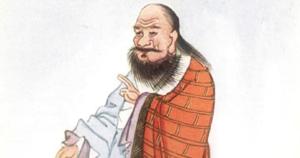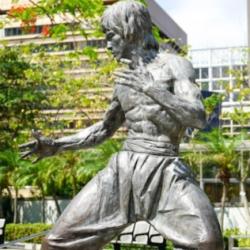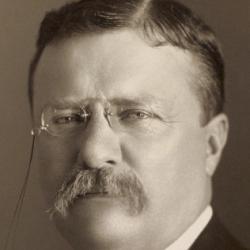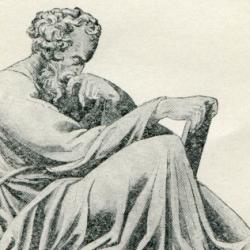 Lao Tzu is a famous Chinese philosopher and widely recognized as the founder of Taoism. In many of his writings, we see guidance on “The Way” and living in harmony and balance. The famous yin yang symbolizes the balance of interconnected opposites like light and dark, hot and cold, and order and chaos. His writings are often poetic. To say he has a way with words would be an understatement.
Lao Tzu is a famous Chinese philosopher and widely recognized as the founder of Taoism. In many of his writings, we see guidance on “The Way” and living in harmony and balance. The famous yin yang symbolizes the balance of interconnected opposites like light and dark, hot and cold, and order and chaos. His writings are often poetic. To say he has a way with words would be an understatement.
Whether metaphysics, morality, or an overall life philosophy, Taoism deals with finding balance and harmony in all things in the universe and in Lao Tzu we also have some incredible gems on offer with pride and leadership. In my earlier post, Lao Tzu on Pride, we see pride as insecurity – and ultimately an impediment to growth. In humility, we become open to what we do not know which makes room for our growth.
For Lao Tzu, true leadership is also potentially counterintuitive, at least at first blush, until we think about the best leaders we admire. And in his always impressive way with words, he reminds of the sea as the queen of rivers and streams:
“How does the sea become the queen of all rivers and streams? By lying lower than they do! Hence, it is the queen of all rivers and streams. One who humbles himself, therefore, can serve all people. By putting himself last, he comes to be their leader. Thus, when one of subtle virtue is set above people, they do not feel he is their burden. And, when he stands in front of people, they do not feel that he is an obstruction to them. Therefore the world follows one of subtle virtue joyfully, and never tires of doing so. He does not compete with anyone, thus he is above all competition.”
Here we see humility at play again. Leaders want the best idea and best from their people, not their idea and total control. Leaders synergize the best ideas and best attributes of those they serve. And when all boats rise, this becomes a lived culture. The captain is the last to leave the ship. To lead, we must serve.
And when this “subtle virtue” is exhibited – people follow “joyfully.” True leaders inspire, the individuals they serve feel empowered to be the best version of themselves, not obstructed. The sea becomes the queen of all rivers and streams by becoming lower than them.
And like the yin yang, there is balance. Order and chaos. On chaos, servant leaders don’t let others take advantage of those in their care as that would be imbalance. Certainly, we can be too accommodating, never have confrontation, and ignore difficult decisions and conversations, but then the culture ultimately erodes.
At the other end, if the leader is too rigid, they miss the mark. The nuance here touches on the difference between management and leadership. To have authority says nothing about leadership. For many with authority, being in control comes with rigidity, fear, and authority. Power indeed corrupts and absolute power indeed corrupts absolutely – for one without humility; one with authority but not a true leader.
Humility is usually the crux of our self-development and our development as leaders. Certainly, if we’re too accommodating and allow chaos to ensure , we’re creating imbalance. But often times, rigidity is our problem as leaders and individuals which is also imbalance. To become a better leader is to become a better servant. To grow personally is to remain confident only in how much more we can grow. Much to the spirit of Socrates’ epistemological humility found in the famous “I know that I know nothing” theme. Confidence in how little one knows seems to be the start of true wisdom.
In serving and inspiring others, balanced in between order and chaos for those that we serve, we find our flow state as leaders.













